This is it folks. This is the week we’ve been waiting for.
And it’s a jungle out there. The Trump camp’s borderline frivolous and outright meritless lawsuits, challenging both voters and ballots, are coming at a frenetic pace.
This morning I wrote about a lawsuit in state court in Georgia that was an effort to stop people from turning in their absentee ballots in person over the weekend. It’s too late to put them in the mail; they don’t count unless they’re received by election day. But lawyers for the Georgia GOP opposed keeping county offices open so people could turn their ballots in.
It wasn’t much of a case, and the judge promptly dismissed it. That should’ve been it, but it wasn’t. Tonight, the Republican National Committee (RNC) and the Georgia Republican Party filed the case a second time, in federal court.
You really can’t make this stuff up. It’s all about voter suppression and helping develop a winning narrative of voter fraud (that isn’t true) in case he loses.
Trump has, of course, spent his weekend exactly as you’d expect, saying it was okay with him if members of the press were killed.
He also said that he should not have left the White House after losing the 2020 election. Thankfully, no microphones appear to have been abused in his Sunday appearances.
As the candidates make their very different closing arguments to the American people, expect the election-related litigation to continue. It will morph into recounts and challenges once the race is decided, which we should not expect to happen quickly. I’ve written before that I don’t expect the outcome to be decided in the Supreme Court. That can happen if you’ve got a situation like Bush v. Gore in 2000, where a small tranche of ballots in one state were going to decide the whole thing. But that’s not the usual case. It’s likely most of the litigation will be decided quickly in state courts, with some cases in federal district and appellate courts.
Law professor and election law expert Justin Levitt has written an excellent piece about this that you’ll enjoy if you want to dig in on this topic. It’s an antidote to the frenzy of concern that the Court we’ve come to hold in low esteem will weigh in for Trump: Please Stop Wishcasting the Supreme Court into a Decisive Election Role.
The GOP pre-election lawsuits were primarily designed to erode confidence in the election and fuel post-election narratives that the entire election was tainted by fraud. Some cases hinted at a post-election strategy of refusing to certify election results. But certification of election results is a mandatory legal duty, and courts like Georgia that have considered it have held that state and local officials do not have discretion to refuse to certify election results.
If an official delays or refuses to certify results, state officials and courts (as well as candidates and voters, in some circumstances) can step in to compel certification. Officials who refuse to certify can be held accountable through both civil and criminal penalties. There are plenty of opportunities baked into the process to ensure that the count is correct. But certification is not one of those points. Refusal to certify election results is really a refusal to count an entire jurisdiction’s votes.
Each state sets its own deadline for certifying the count. Some examples below. A key date to look for is December 11, when the Electoral Count Reform Act (ECRA) requires the governor of each state to certify the appointment of electors well in advance of the electors’ votes. On December 17, the electors meet in their respective states to take part in the Electoral College and formally cast their state’s electoral votes for president and vice president. The ECRA removes the ambiguity that Trump’s lawyers exploited to create the fake electors scheme in 2020. Any refusal to certify the vote can be dealt with by lawsuits that force the certification or state rules that provide alternate paths for certification. People who refuse to follow the law and certify results can even face penalties.
In preparation for Tuesday, law enforcement officials have been vigilant about the possibility of violence at the polls or around the election, while hoping it won’t occur. Keep in mind that if it does, we will not see federal law enforcement or troops out at the polls. Election oversight is largely left to to the states; it’s even a crime for armed federal agents like FBI or U.S. Marshals’ personnel, along with members of the military, to be sent in. I’m told there is an unprecedented level of cooperation between federal, state, and local law enforcement to keep the election—and election workers—safe.
There’s also good news in preparation for election day. As many as 17,000 voters in Erie County, Pennsylvania, who didn’t receive their mail-in ballots are being permitted to vote early in person. The voters requested ballots but didn’t receive them, but a judge gave them permission to vote up through Monday and, equally as important, ordered that polling places needed to have sufficient numbers of ballots on hand in case these voters all show up at the precinct on election day. This case is a great example of how election-related issues frequently get resolved in the lower courts. And one of the sleeper stories emerging in this election already is about how some pockets of slow and delayed mail delivery are factoring into who gets a ballot and whose ballot makes it back in time to be counted.
In other words, we are all over the place as election day approaches, with lots of moving parts. I hope you’ll leave a note in the comments about what’s going on in your part of the country.
Today in North Carolina, Trump referenced a candidate named David as “one of the best” and looked around at the crowd, asking if he was out there. The only problem? David is David McCormick, a candidate for office in Pennsylvania. Imagine what would have happened if Joe Biden had done that?
S.V. Dáte at Huff Post tweeted tonight that he had reached out to the Trump campaign to ask “why the coup-attempting, now convicted criminal, former president is an unfocused mess in these final days.” He got this in response:
If this leaves you in need of an emotional support chicken, I’ll be here for you this week. This is Guida, who only agreed to sit on my lap this morning because I had Buñuelos that I shared with her. But she purred softly, and that was just what I needed.
I’m really grateful to all of you for being here with me this week.
We’re in this together,
Joyce




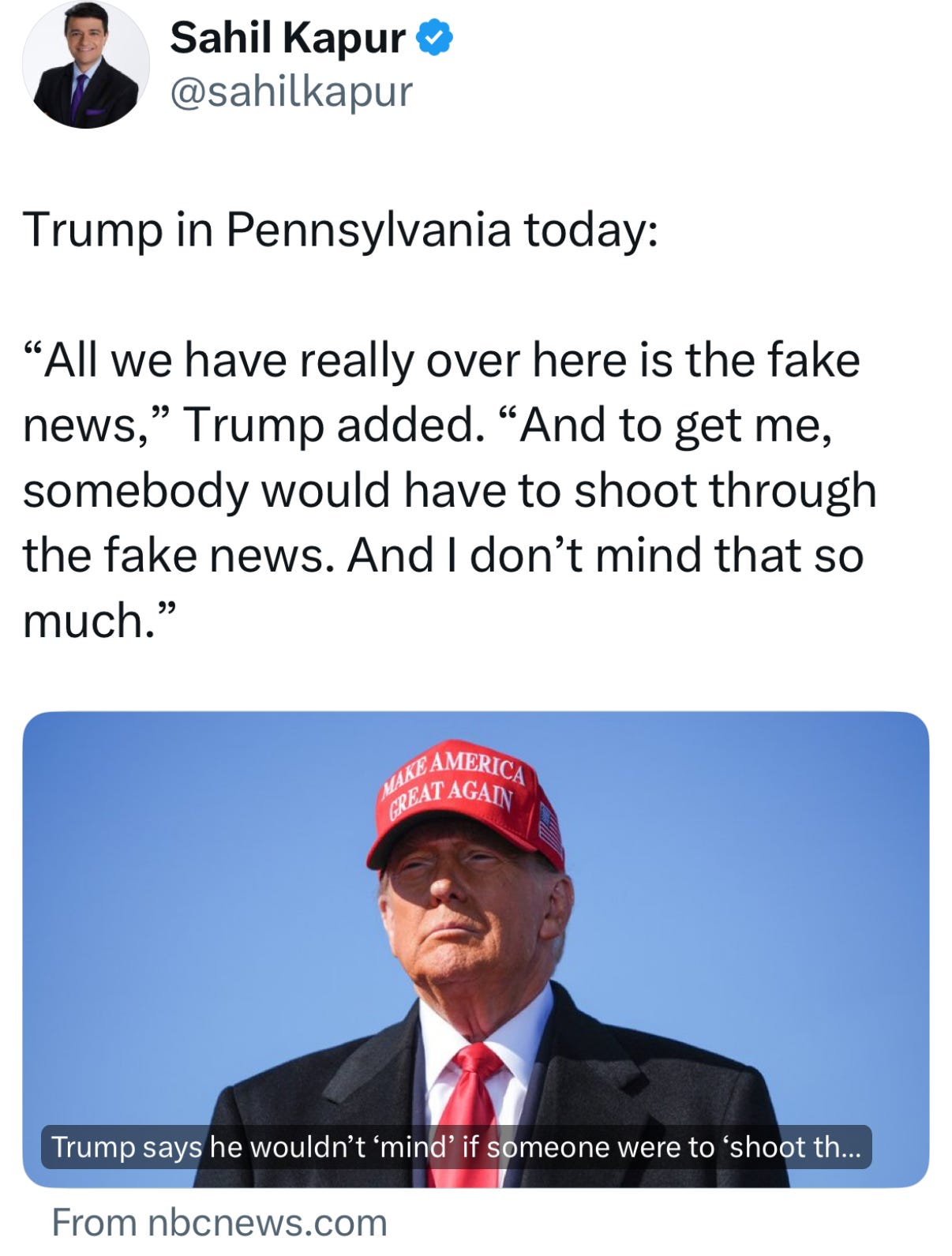
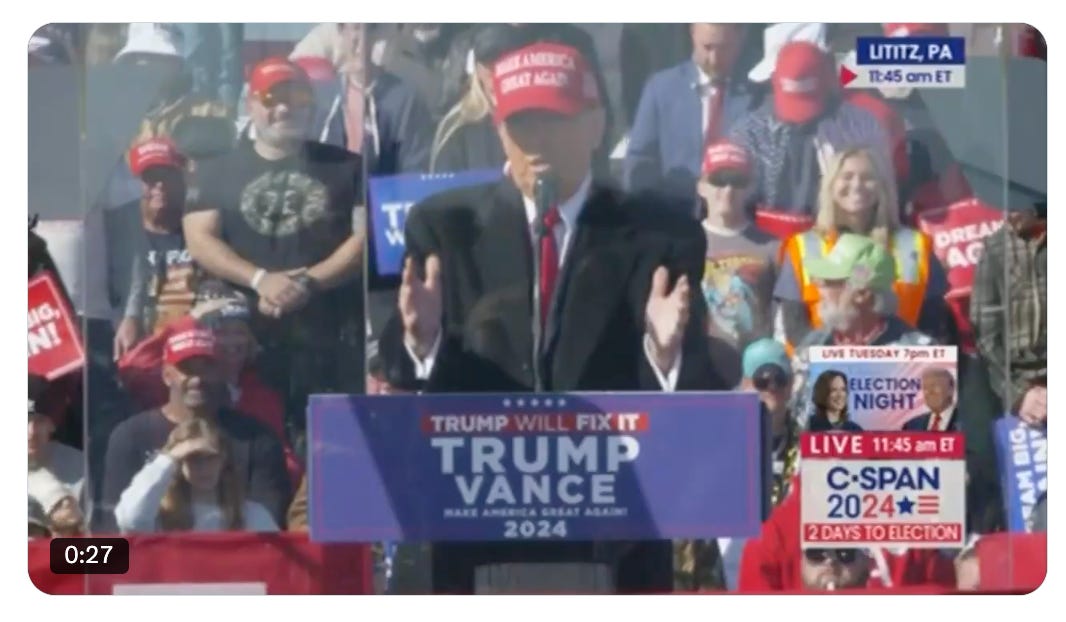
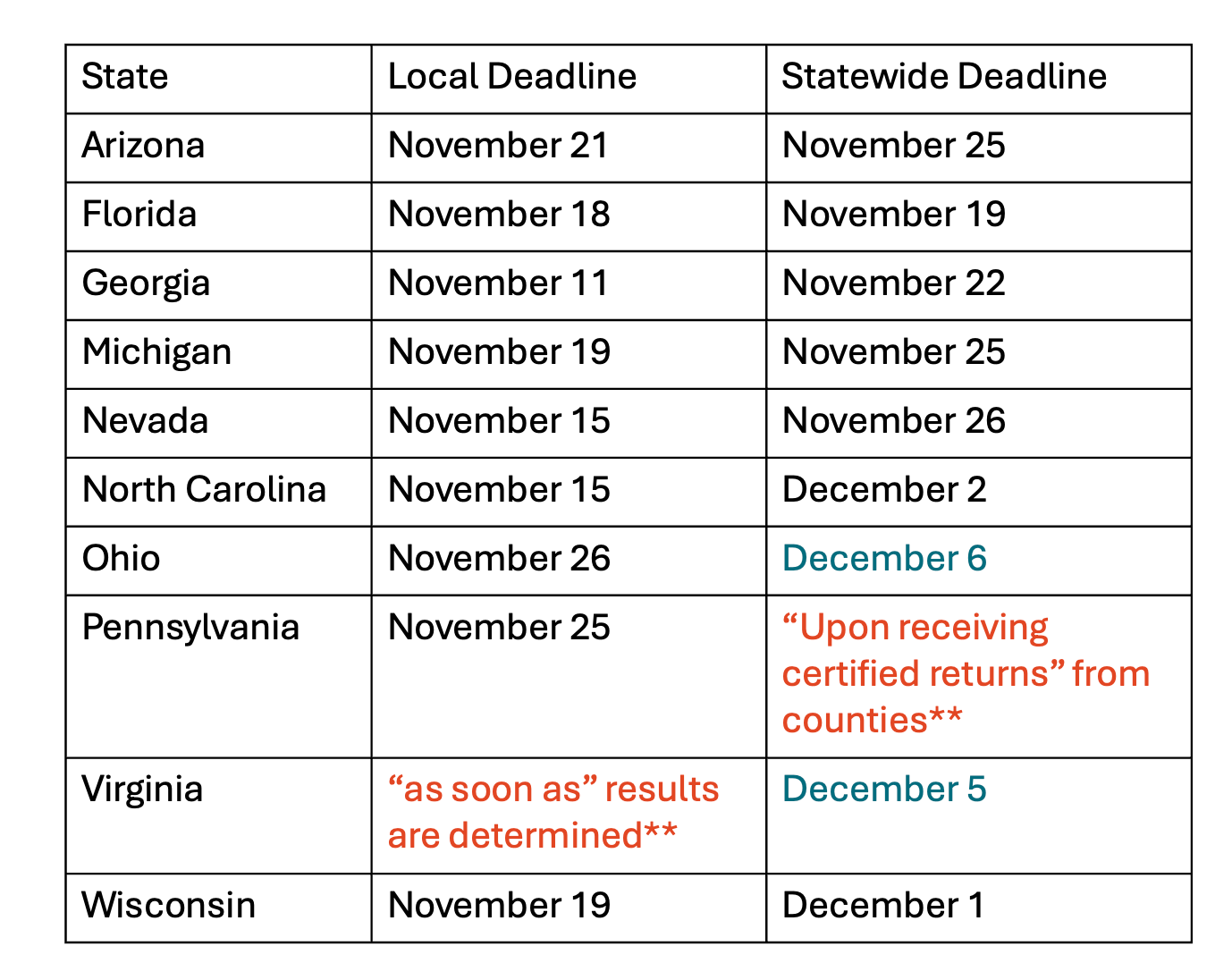
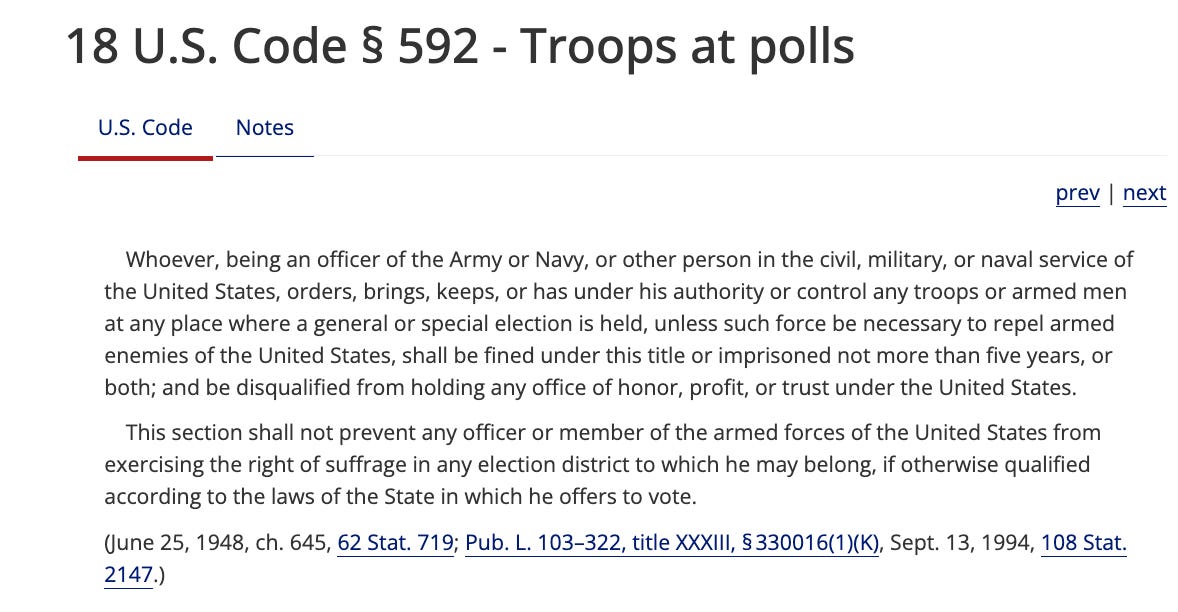
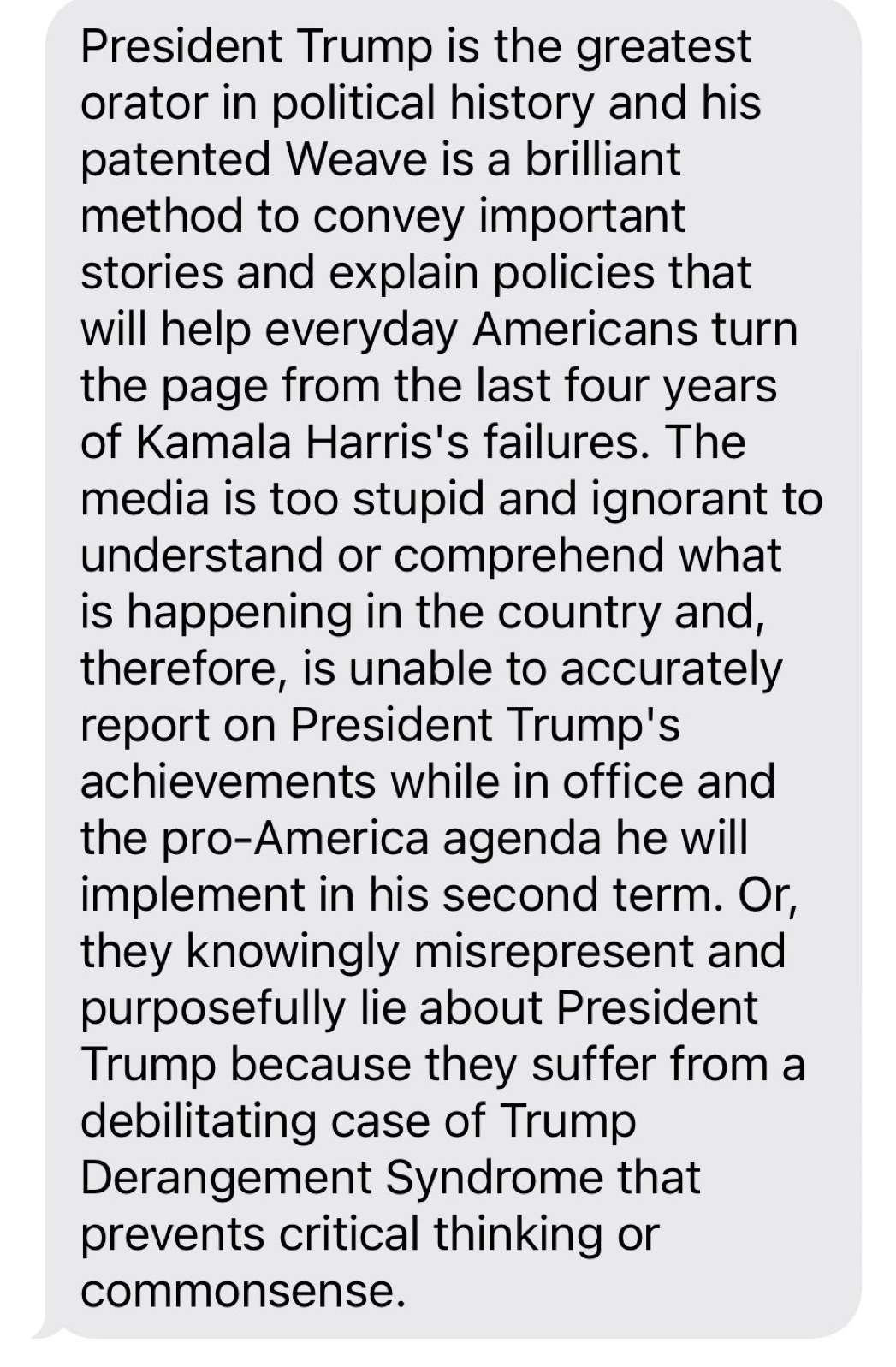
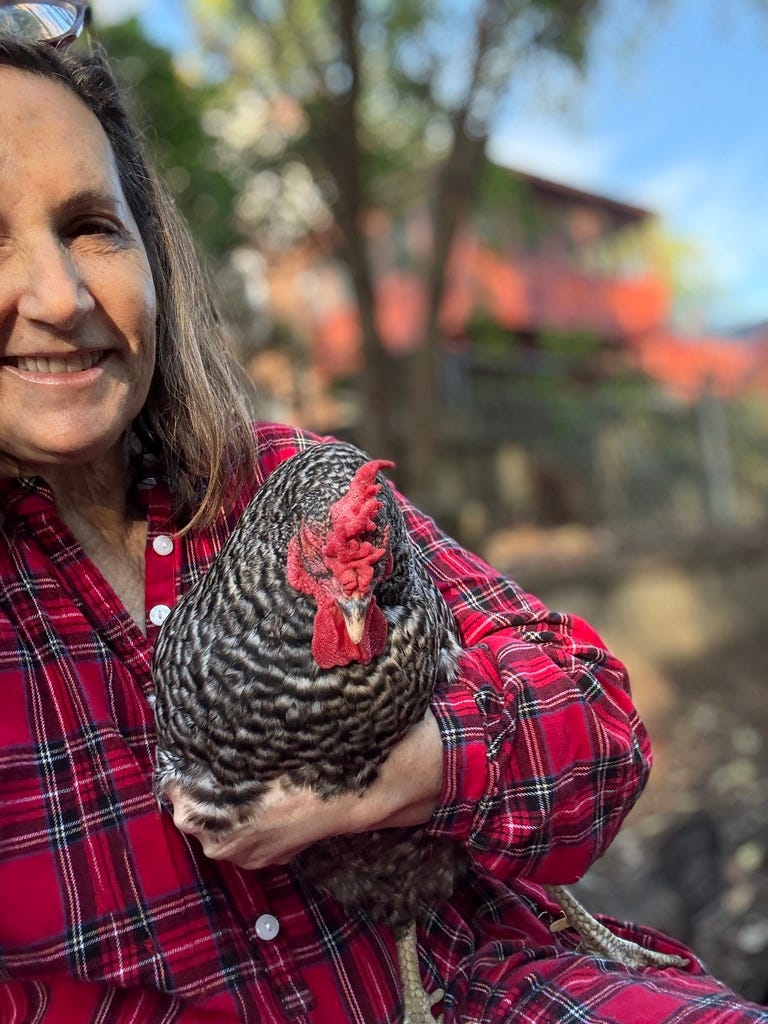
Justice Samuel Alito, writing in the Dobbs decision: “women are not without electoral or political power.”
Challenge accepted.
Joyce—
Thanks for all you are and all you do .You provide much needed clarity and encouragement . We are grateful.
George H.